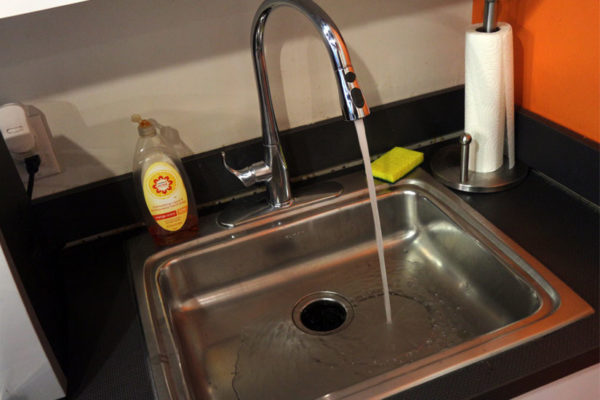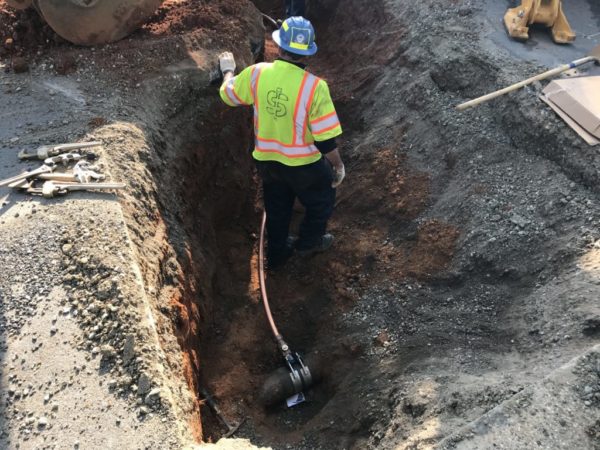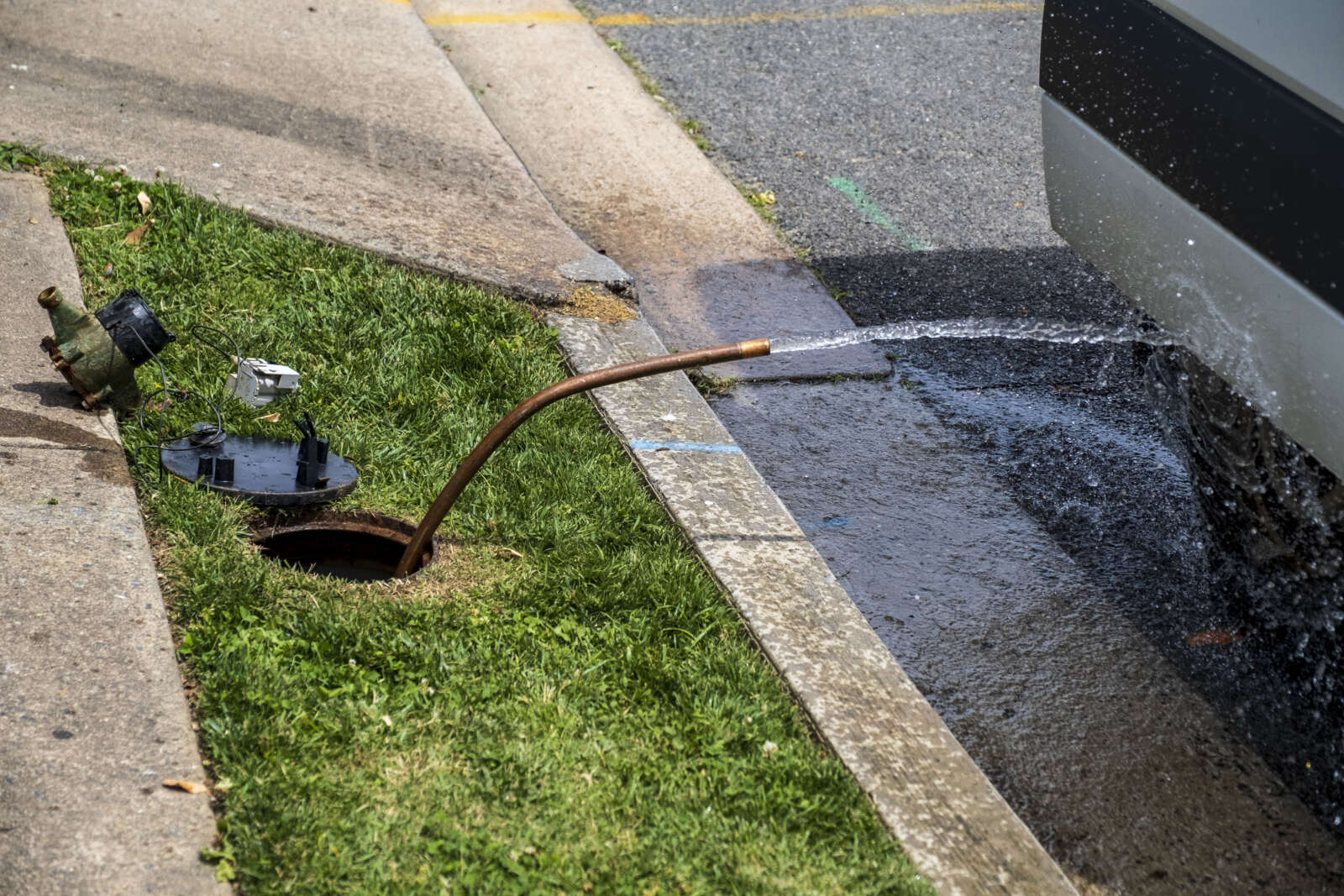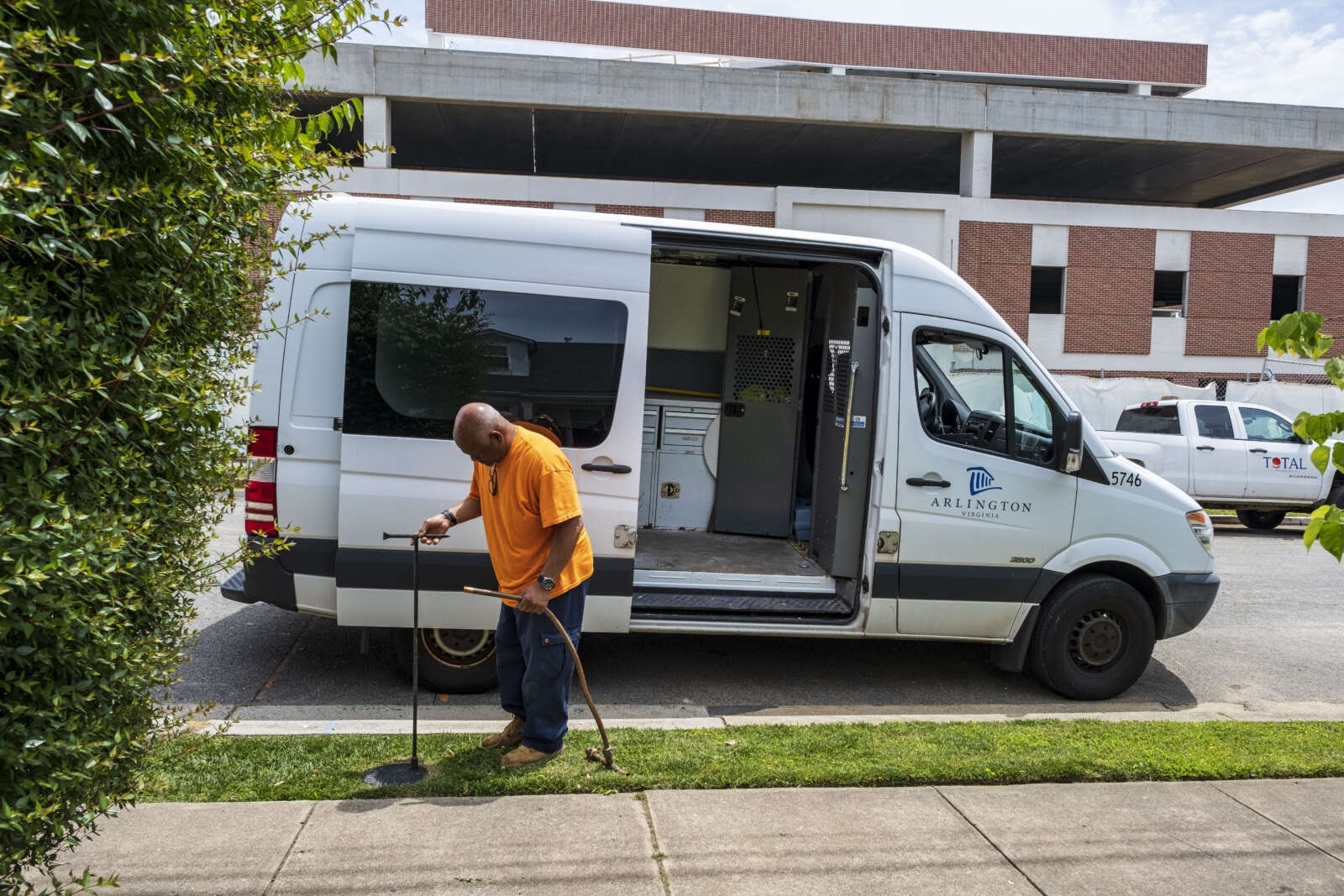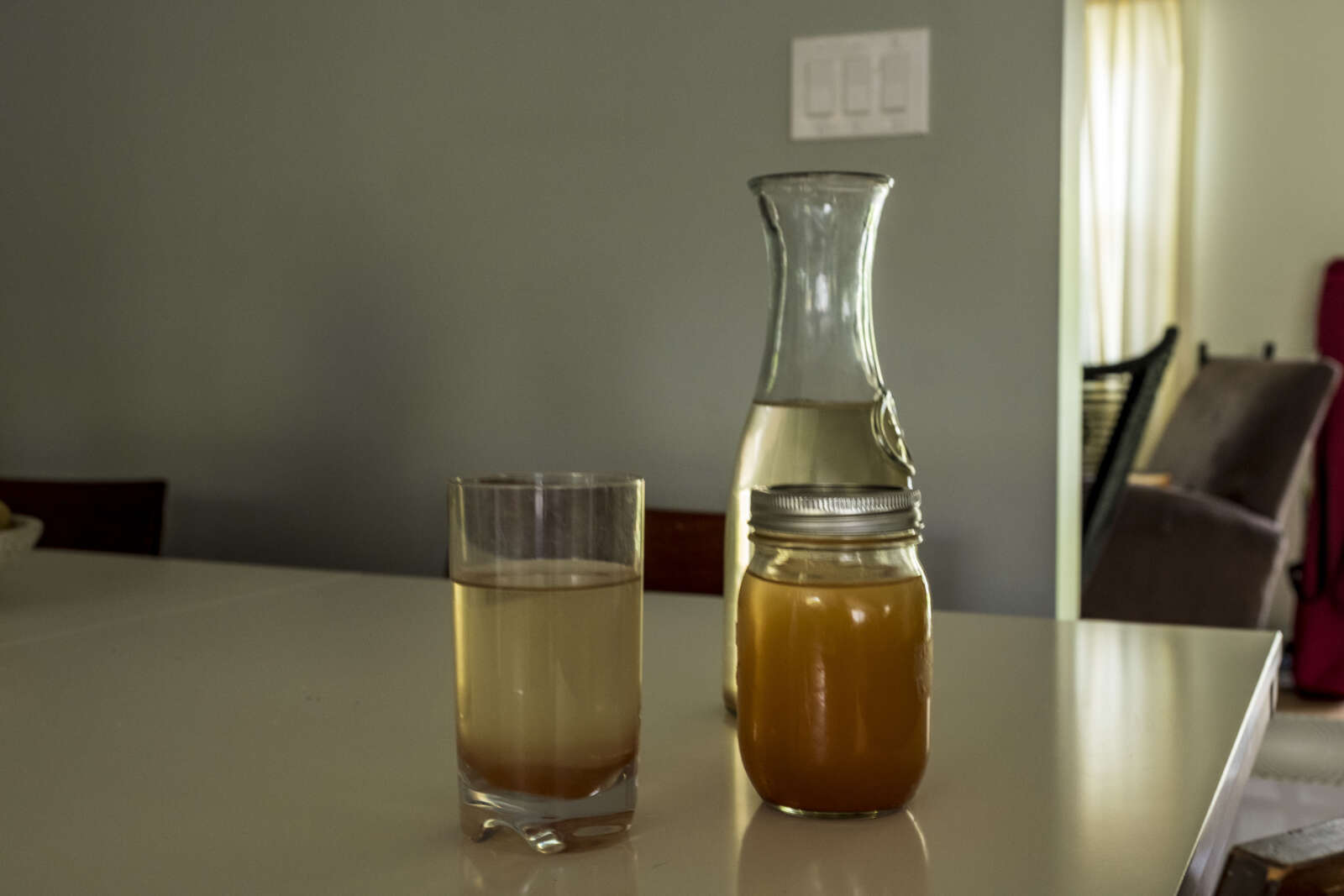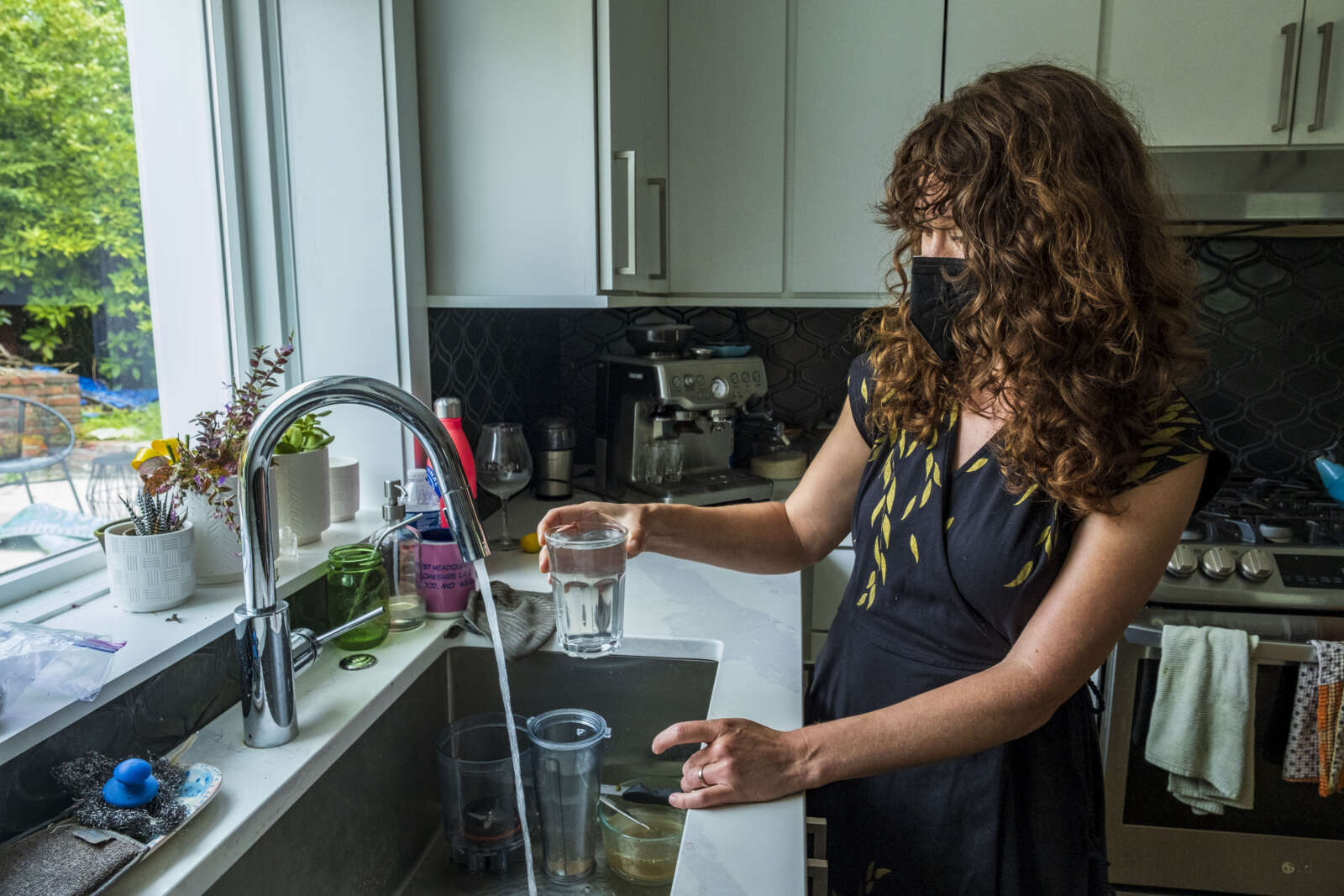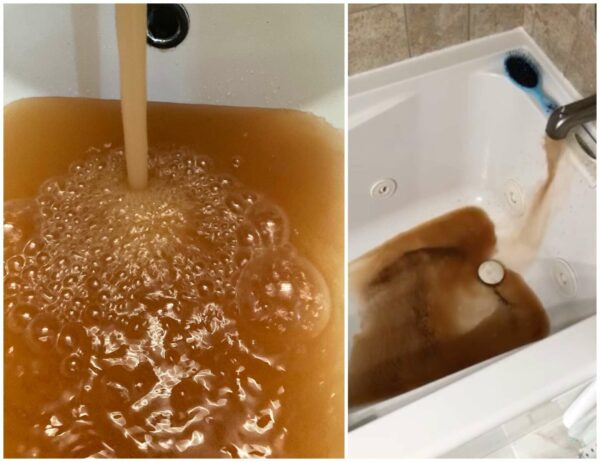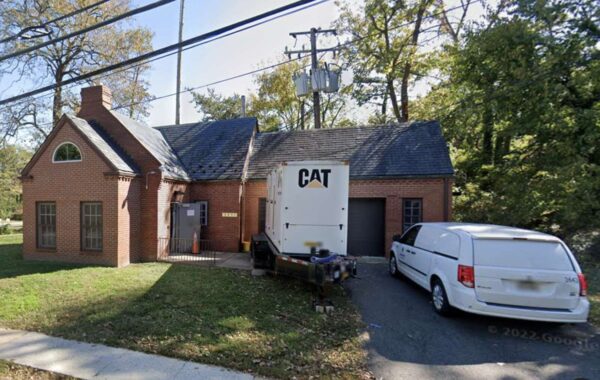
There is an unassuming pump station near Fort Ethan Allen Park in North Arlington that the county says is “a vital component” of its drinking water distribution system.
The Ethan Allen Pump Station, when needed, ensures proper water pressure for customers, says a spokesman for the Dept. of Environmental Services. But for several years, the Ethan Allen station has had a portable generator outside because the one inside is inoperable, according to a county report.
This weekend, the Arlington County Board is set to review a contract that would see the installation of a new permanent generator inside, which a staff report says will be less of an eye- and ear-sore for the neighborhood.
The Ethan Allen Pump Station is just one part of the complex system that cycles water from the Potomac River to your faucets and then to a wastewater treatment plant in South Arlington, near the county line. The $779,000 maintenance project, meanwhile, is part of a 10-year, $245 million maintenance schedule for the county’s water-sewer infrastructure, which in turn is based on a 2014 master plan aimed at ensuring the system meets current and projected water demands through 2040.
“These programs construct and maintain the infrastructure, facilities and equipment that provide safe, reliable and compliant drinking water, sanitary sewer collection and wastewater treatment for the county’s residents, businesses and visitors,” according to the county.
Arlington, D.C. and Fairfax County get their water from the Army Corps of Engineers’ Dalecarlia Treatment Plant in northwest D.C., which is fed Potomac River water via the Washington Aqueduct. The same treatment plant is responsible for the annual disinfectant change, taking place next week, which will add a slight chlorine taste to the water for hundreds of thousands of residents.
Some 7.5 billion gallons of water annually traverse about 500 miles of pipelines to enter Arlington’s apartments and businesses and single-family homes. Wastewater then goes to the Arlington Water Pollution Control Plant, which treats it before it flows into the Chesapeake Bay.
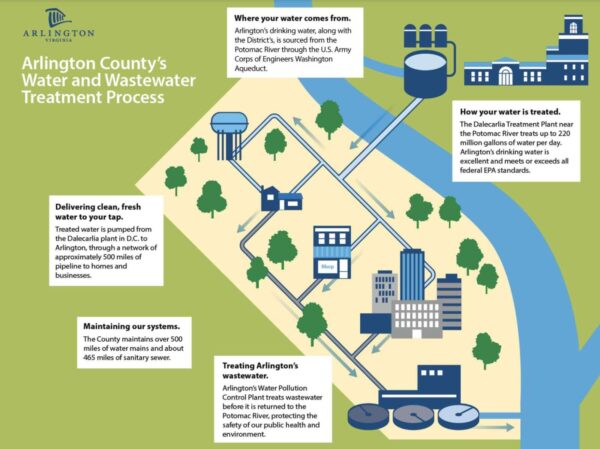
This system is built on all these parts — including a pump station in North Arlington — functioning. Sometimes, however, that infrastructure fails to deliver clean, colorless water, which is another issue the county is addressing.
Arlington has some old water mains that are prone to breaking particularly during inclement winter weather (which we have not had a lot of this year). With age also comes decades of deposited sediment and minerals, like copper, which can discolor water when disturbed.
While DES says this happens rarely, ARLnow has heard from readers, from time to time, who report discoloration issues with their water.
“In our case, the fouled and rust colored water is likely due to aging pipes,” Bluemont resident PJ Dermer recently told us. “At least this is what Arlington is telling us.”
Relief from discolored water, however, requires upgrading aging infrastructure.
“Replacement of water mains requires much resources and environmental disturbances like digging; lining an older main can solve an issue of water quality and requires far fewer resources and disturbances,” says DES spokesman Peter Golkin.
In the meantime, there are stop gap solutions, like county service workers flushing out the water mains.
Dermer said this week that he believes his complaints have gained traction, as the county is now working on replacing the water main and pipes along his street.
“Arlington’s drinking water is safe and meets all federal and state standards,” Golkin says. “When customers have specific concerns about their water service, we work diligently to address those areas of the system to their satisfaction.”
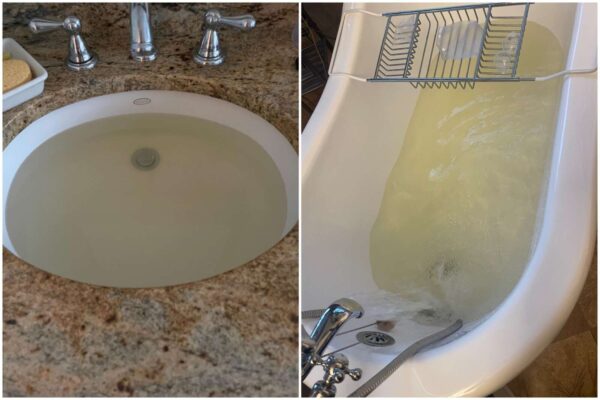
Water and water systems aren’t the splashiest area for spending on major infrastructure, at least according to one county-conducted poll of residents that asked about capital investment priorities.


